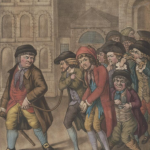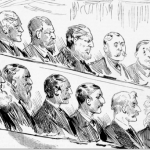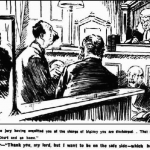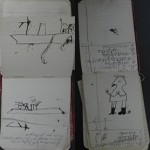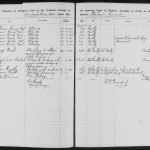Research Brief 20 One of the benefits of the Prosecution Project’s large-scale digitisation of court records is that it not only allows researchers to trace individuals, but to map changes in the criminal justice process over a long period of time. Mapping these longitudinal changes is not only of potential value to scholars of legal […]
Tag Archives: Alana Piper
Juries and impartial justice
Research Brief 13 In 1898, police constable Edward Johnson was committed for trial on larceny charges. Johnson, acting in his official capacity, had allegedly received an overdue rates payment from a householder at Bendigo, and neglected to pay it into the council fund. In December Johnson was duly tried, but the jury failed to […]
Love and deceit
Research Brief 10 For the past several weeks, radio listeners who tune in to the drive-time programme of comedians Dave Hughes and Kate Langbroek have been enthralled by the unfolding saga of Barb and Niko. Barb is Langbroek’s online alter-ego, whose dating profile – depicting her as a rich middle-aged widow – was designed […]
Christmas, crime and spirits
Research Brief 5 The festive period may be the season of good will, but this annual spirit of benevolence is not particularly apparent from the annals of criminal history. While court business is suspended across the holidays, crime is decidedly not. Just like the rest of the year, a variety of offences against property, […]
Unearthing criminal pasts
Research Brief 4 For those infected with the historical research bug, there are few more satisfying experiences than delving into the original records held in private, national or state archives. Almost every researcher I have encountered at such institutions – be they family, local or academic historians – insist that it is this treasure-hunting […]
Uttering, not littering
Research Brief 2 Learning to decipher the handwritten criminal registers being used to construct the Prosecution Project’s database can be like learning another language. Over time the initially illegible appearance of nineteenth-century scrawl becomes more familiar. Those who work regularly with archival documents gradually learn the secrets of decoding the idiosyncrasies of historic handwriting; […]

